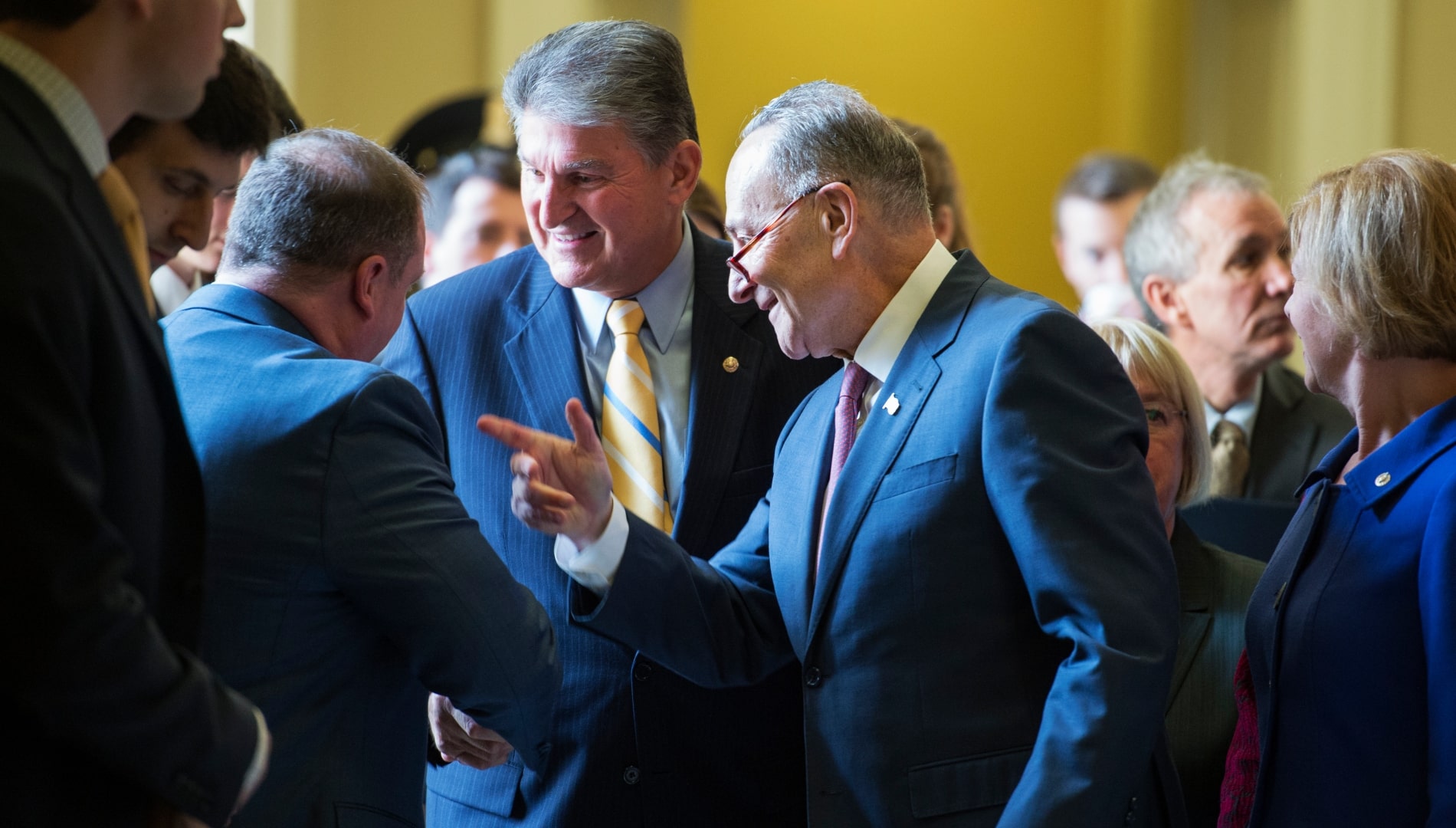OPINION: This article may contain commentary which reflects the author's opinion.
Senate Democratic leaders are so skittish about their bare majority in the evenly divided chamber ahead of a crucial vote on a major spending bill they are not taking any chances.
As such, they have adopted a “Don’t Test, Don’t Tell” policy of sorts this weekend to ensure there are enough members to ram through a $764 billion spending package in the 50-50 chamber.
That means no members will be tested for COVID-19, as any positive test would mean the member could not be allowed in the Senate to vote, as the chamber does not allow voting by proxy like the House does, the New York Post reported, citing Puck News.
The Post noted: “Senate Majority Leader Chuck Schumer (D-NY) has set a Saturday test vote for the so-called Inflation Reduction Act, which needs all 50 Democrats on board so Vice President Kamala Harris can cast a tiebreaking vote in its favor.”
“They’re not going to delay it if a member has gotten COVID,” a senior Senate aide told Puck News. “Counterparts are saying they’re not going to test anymore. It’s not an official mandate but we all know we’re not letting COVID get in the way. The deal is happening. Less testing, just wear masks and get it done.”
Another source told Puck News that should any Democratic senator contract the virus, “you can bring your ventilator and still vote.”
Earlier in the week before Sen. Krysten Sinema (D-Ariz.) agreed to get on board the spending bill, Senate Majority Leader Chuck Schumer (D-N.Y.) claimed that all members were “going to stay healthy” ahead of a potential vote, The Post reported.
“We’re not talking about a plan B,” said Schumer at the time.
The outlet continued:
Concerns about having all 50 Democrats and Democrat-voting Independents present on the Senate floor have grown in recent weeks, as several senators have tested positive for COVID or been absent for other health reasons.
In late June, Senate President Pro Tempore Patrick Leahy (D-Vt.) fell in his Virginia home and broke his hip – keeping him out of Washington until this week. He ultimately underwent two surgeries.
Just a week before, Republican Sen. Kevin Cramer of North Dakota seriously injured his hand during a yard work incident.
In early July, Schumer and Sen. Richard Blumenthal (D-Conn.) tested positive for COVID-19, both reporting mild symptoms. Days later, Manchin and Republican Sen. Lisa Murkowski of Alaska also reported positive tests.
Not surprisingly, Schumer blasted Senate Republicans in the fall of 2020 for allegedly taking COVID-19 testing too lightly as several positive tests threatened to interfere with the confirmation of Supreme Court Justice Amy Coney Barrett, then-President Trump’s third high court nominee.
“Every Senator and relevant staff must have negative tests on two consecutive days and have completed the appropriate quarantining period, and there should be mandatory testing every day of the [confirmation] hearing,” Schumer said in a statement on Oct. 5, 2020.
“Testing must be administered by an independent entity, such as the Attending Physician of the United States Congress. Failure to implement a thorough testing approach would be intentionally reckless, and could reasonably lead some wonder if Chairman [Lindsey] Graham and Leader [Mitch] McConnell may not want to know the results,” Schumer added.
Should the test vote succeed as expected, the chamber will hear and vote on several Republican amendments ahead of an expected final vote on Sunday. If the measure passes, then it will head to the House where Democrats have a slight majority.
Sinema agreed to support the legislation, which contains hundreds of billions in new spending on ‘climate’ and energy initiatives, “after a provision taxing profits earned by hedge fund, venture capital and private equity executives known as carried interest was removed. In exchange, a 1% tax on corporate stock buybacks was added,” The Post reported.
Despite being called an inflation reduction bill, several economists and independent economic analyses, as well as the White House, have all suggested that it won’t really do much to lower inflation, The Post noted further.
